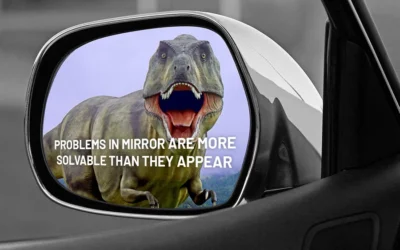When you meet new prospects, network or attend industry events, the moment you hand out your business card, your credibility will be on the line. Typically, the first thing most people do when they get back to the office is check out your website. If it doesn’t immediately convey a genuine sense of empathy (quite possibly, your greatest sales tool), you can lose your audience in seconds. If it’s not well-designed and informative, those prospects will quickly turn into missed opportunities. If it doesn’t function properly, they might never get to the first click.
Your website is your most important marketing tool. It’s usually your best opportunity to showcase what makes you great and why it matters to your audience. An effective website will distinguish your business from your competitors, include customer testimonials and provide a platform to share and promote your subject matter expertise.
But, a successful website does more than look great and make you shine. Effective sites send visitors down a pre-determined path and into a sales funnel. They offer a meaningful call to action (CTA) as an incentive to engage prospects further. Depending on the business type, free downloads, coupons and new customer discounts can be very effective. Free consultations, while helpful, are not effective CTAs, since everybody offers them.
Avoid Form over Function
While a great design is certainly important, your message matters more. The words come first. Most great web experiences strike the right balance between words and pictures to communicate. If your message doesn’t connect emotionally with the audience, you’ll risk losing them before they convert to prospects. If it’s too brief, they’ll become bored or, worse yet, won’t be able to make an informed decision. If it’s too wordy, they’ll lose patience and move on. If it’s all about you, guess what? Prospects don’t care about you until they know that you care about them.
Clever animations, embedded videos and other effects can positively enhance the user experience. But they should be used with discretion and never at the expense of functionality. Having glitz for the sake of having it can become more distracting than anything.
First, They Need to Find You
Talented web “designers” are everywhere. But, as outlined above, design is only one part of a successful web strategy. In addition to great design and effective messaging, your website also needs to work properly. It should be mobile-friendly, load quickly, be easy to navigate and have security (which is no longer a luxury).
Driving traffic to your site is paramount. Even if you cannot afford paid advertising or a big-ticket search engine optimization (SEO) plan, there are still foundational SEO pieces you should have in place. A simple key word strategy, proper image tagging, good readability and other best practices should be part of every website, no matter how large or small. Having a website without these simple pieces in place is like sitting in a room with the lights turned off. If people can’t see you, what’s the use of being there?
The Cost of Doing it Yourself
Unless you do it for a living, building your own website will likely show and could undermine your marketing. Your competitors have likely hired professionals to build their sites and you should, too. If it’s something you don’t think you can afford, think again. Remember, marketing is an investment and should never be viewed solely as an expense. For early stage and start-up businesses, it’s a prerequisite to profitability and should be a key part of any serious business plan. Focus on the value a professional brings and the time it frees up for you to make money doing what you do best. The so-called savings of building your own website will be far outweighed by the cost of doing it wrong.
If you’ve taken a long time to build a first-rate reputation, don’t let a second-rate website undo it. Your credibility is worth preserving.
Related Posts
15 marketing reality checks (Don’t let #9 hurt your feelings.)
We’ve collected a number of the more salient points from our blog and are presenting them as a marketing reality check list. A good number of these apply to new or small businesses. But you’ll also find that some of the largest corporations in the world make many of the same missteps.
Wrestle that marketing axe away from your CFO
When businesses slow down, CFOs begin to get nervous. If they decide to tighten their belt, marketing budgets are usually the first to get cut. This is often a shortsighted and reactionary move. If marketing is the fuel for your sales team, the last thing you want to do is suck all of the oxygen out of the room.
Five ways to give your marketing a Spring cleaning. (Number 5 is easier than you think.)
Spring is a season of renewal and rejuvenation. So, shake off the rust, get out the broom and add some polish to your business. Here are a few things you should consider at least once a year to tidy up your marketing.
Be more like Mickey
Without answering these four questions with authority, your marketing won’t connect with your audience in a meaningful way that distinguishes you from your competitors and puts you in their corner.
What do you want your business to look like five years from now?
If your brand cannot adapt to change, you could end up burning cycles recovering what you lost instead of spending your time building on what you have. As Ben Franklin once put it, “An ounce of prevention is worth a pound of cure.”
Nine marketing tips to end your year with a bang!
As the calendar year winds down, it always a good idea to take a step back to revisit and refresh your marketing. Your business will be better off by doing so. But, don’t go overboard and be too disruptive.







